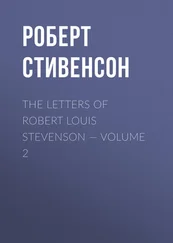Роберт Стивенсон - The Pocket R.L.S. - Being Favourite Passages from the Works of Stevenson
Здесь есть возможность читать онлайн «Роберт Стивенсон - The Pocket R.L.S. - Being Favourite Passages from the Works of Stevenson» — ознакомительный отрывок электронной книги совершенно бесплатно, а после прочтения отрывка купить полную версию. В некоторых случаях можно слушать аудио, скачать через торрент в формате fb2 и присутствует краткое содержание. Жанр: literature_19, foreign_antique, foreign_prose, на английском языке. Описание произведения, (предисловие) а так же отзывы посетителей доступны на портале библиотеки ЛибКат.
- Название:The Pocket R.L.S.: Being Favourite Passages from the Works of Stevenson
- Автор:
- Жанр:
- Год:неизвестен
- ISBN:нет данных
- Рейтинг книги:4 / 5. Голосов: 1
-
Избранное:Добавить в избранное
- Отзывы:
-
Ваша оценка:
- 80
- 1
- 2
- 3
- 4
- 5
The Pocket R.L.S.: Being Favourite Passages from the Works of Stevenson: краткое содержание, описание и аннотация
Предлагаем к чтению аннотацию, описание, краткое содержание или предисловие (зависит от того, что написал сам автор книги «The Pocket R.L.S.: Being Favourite Passages from the Works of Stevenson»). Если вы не нашли необходимую информацию о книге — напишите в комментариях, мы постараемся отыскать её.
The Pocket R.L.S.: Being Favourite Passages from the Works of Stevenson — читать онлайн ознакомительный отрывок
Ниже представлен текст книги, разбитый по страницам. Система сохранения места последней прочитанной страницы, позволяет с удобством читать онлайн бесплатно книгу «The Pocket R.L.S.: Being Favourite Passages from the Works of Stevenson», без необходимости каждый раз заново искать на чём Вы остановились. Поставьте закладку, и сможете в любой момент перейти на страницу, на которой закончили чтение.
Интервал:
Закладка:
The Greeks figured Pan, the god of Nature, now terribly stamping his foot, so that armies were dispersed; now by the woodside on a summer noon trolling on his pipe until he charmed the hearts of upland ploughmen. And the Greeks, in so figuring, uttered the last word of human experience. To certain smoke-dried spirits matter and motion and elastic ethers, and the hypothesis of this or that other spectacled professor, tell a speaking story; but for youth and all ductile and congenial minds, Pan is not dead, but of all the classic hierarchy alone survives in triumph; goat-footed, with a gleeful and an angry look, the type of the shaggy world: and in every wood, if you go with a spirit properly prepared, you shall hear the note of his pipe.
To leave home in early life is to be stunned and quickened with novelties; but when years have come, it only casts a more endearing light upon the past. As in those composite photographs of Mr. Galton’s, the image of each new sitter brings out but the more clearly the central features of the race; when once youth has flown, each new impression only deepens the sense of nationality and the desire of native places. So may some cadet of Royal Ecossais or the Albany Regiment, as he mounted guard about French citadels, so may some officer marching his company of the Scots-Dutch among the polders, have felt the soft rains of the Hebrides upon his brow, or started in the ranks at the remembered aroma of peat-smoke. And the rivers of home are dear in particular to all men. This is as old as Naaman, who was jealous for Abana and Pharpar; it is confined to no race nor country, for I know one of Scottish blood but a child of Suffolk, whose fancy still lingers about the hued lowland waters of that shire.
We travelled in the print of olden wars;
Yet all the land was green;
And love we found, and peace,
Where fire and war had been.
They pass and smile, the children of the sword —
No more the sword they wield;
And O, how deep the corn
Along the battlefield!
To reckon dangers too curiously, to hearken too intently for the threat that runs through all the winning music of the world, to hold back the hand from the rose because of the thorn, and from life because of death: this it is to be afraid of Pan. Highly respectable citizens who flee life’s pleasures and responsibilities and keep, with upright hat, upon the midway of custom, avoiding the right hand and the left, the ecstasies and the agonies, how surprised they would be if they could hear their attitude mythologically expressed, and knew themselves as tooth-chattering ones, who flee from Nature because they fear the hand of Nature’s God!
The spice of life is battle; the friendliest relations are still a kind of contest; and if we would not forego all that is valuable in our lot, we must continually face some other person, eye to eye, and wrestle a fall whether in love or enmity. It is still by force of body, or power of character or intellect, that we attain to worthy pleasures.
Extreme BUSYNESS, whether at school or college, kirk or market, is a symptom of deficient vitality; and a faculty for idleness implies a catholic appetite and a strong sense of personal identity. There is a sort of dead-alive, hackneyed people about, who are scarcely conscious of living except in the exercise of some conventional occupation. Bring these fellows into the country, or set them aboard ship, and you will see how they pine for their desk or their study. They have no curiosity; they cannot give themselves over to random provocations; they do not take pleasure in the exercise of their faculties for its own sake; and unless Necessity lays about them with a stick, they will even stand still. It is no good speaking to such folk: they CANNOT be idle, their nature is not generous enough; and they pass those hours in a sort of coma, which are not dedicated to furious moiling in the gold-mill.
If a person cannot be happy without remaining idle, idle he should remain. It is a revolutionary precept; but thanks to hunger and the workhouse, one not easily to be abused; and within practical limits, it is one of the most incontestable truths in the whole Body of Morality. Look at one of your industrious fellows for a moment, I beseech you. He sows hurry and reaps indigestion; he puts a vast deal of activity out to interest, and receives a large measure of nervous derangement in return. Either he absents himself entirely from all fellowship, and lives a recluse in a garret, with carpet slippers and a leaden inkpot; or he comes among people swiftly and bitterly, in a contraction of his whole nervous system, to discharge some temper before he returns to work. I do not care how much or how well he works, this fellow is an evil feature in other people’s lives. They would be happier if he were dead.
‘We are all employed in commerce during the day; but in the evening, VOYEZ-VOUS, NOUS SOMMES SERIEUX.’ These were the words. They were all employed over the frivolous mercantile concerns of Belgium during the day; but in the evening they found some hours for the serious concerns of life. I may have a wrong idea of wisdom, but I think that was a very wise remark. People connected with literature and philosophy are busy all their days in getting rid of second-hand notions and false standards. It is their profession, in the sweat of their brows, by dogged thinking, to recover their old fresh view of life, and distinguish what they really and originally like from what they have only learned to tolerate perforce. And these Royal Nautical Sportsmen had the distinction still quite legible in their hearts. They had still those clean perceptions of what is nice and nasty, what is interesting and what is dull, which envious old gentlemen refer to as illusions. The nightmare illusion of middle age, the bear’s hug of custom gradually squeezing the life out of a man’s soul, had not yet begun for these happy-starr’d young Belgians. They still knew that the interest they took in their business was a trifling affair compared to their spontaneous, long-suffering affection for nautical sports. To know what you prefer, instead of humbly saying Amen to what the world tells you you ought to prefer, is to have kept your soul alive. Such a man may be generous; he may be honest in something more than the commercial sense; he may love his friends with an elective, personal sympathy, and not accept them as an adjunct of the station to which he has been called. He may be a man, in short, acting on his own instincts, keeping in his own shape that God made him in; and not a mere crank in the social engine-house, welded on principles that he does not understand, and for purposes that he does not care for.
I suppose none of us recognise the great part that is played in life by eating and drinking. The appetite is so imperious that we can stomach the least interesting viands, and pass off a dinner hour thankfully enough on bread and water; just as there are men who must read something, if it were only ‘Bradshaw’s Guide.’ But there is a romance about the matter, after all. Probably the table has more devotees than love; and I am sure that food is much more generally entertaining than scenery. Do you give in, as Walt Whitman would say, that you are any the less immortal for that? The true materialism is to be ashamed of what we are. To detect the flavour of an olive is no less a piece of human perfection than to find beauty in the colours of the sunset.
For the country people to see Edinburgh on her hill-tops, is one thing; it is another for the citizen, from the thick of his affairs, to overlook the country. It should be a genial and ameliorating influence in life; it should prompt good thoughts and remind him of Nature’s unconcern: that he can watch from day to day, as he trots officeward, how the spring green brightens in the wood, or the field grows black under a moving ploughshare. I have been tempted, in this connection, to deplore the slender faculties of the human race, with its penny-whistle of a voice, its dull ears, and its narrow range of sight. If you could see as people are to see in heaven, if you had eyes such as you can fancy for a superior race, if you could take clear note of the objects of vision, not only a few yards, but a few miles from where you stand: – think how agreeably your sight would be entertained, how pleasantly your thoughts would be diversified, as you walk the Edinburgh streets! For you might pause, in some business perplexity, in the midst of the city traffic, and perhaps catch the eye of a shepherd as he sat down to breathe upon a heathery shoulder of the Pentlands; or perhaps some urchin, clambering in a country elm, would put aside the leaves and show you his flushed and rustic visage; or as a fisher racing seaward, with the tiller under his elbow, and the sail sounding in the wind, would fling you a salutation from between Anst’er and the May.
Читать дальшеИнтервал:
Закладка:
Похожие книги на «The Pocket R.L.S.: Being Favourite Passages from the Works of Stevenson»
Представляем Вашему вниманию похожие книги на «The Pocket R.L.S.: Being Favourite Passages from the Works of Stevenson» списком для выбора. Мы отобрали схожую по названию и смыслу литературу в надежде предоставить читателям больше вариантов отыскать новые, интересные, ещё непрочитанные произведения.
Обсуждение, отзывы о книге «The Pocket R.L.S.: Being Favourite Passages from the Works of Stevenson» и просто собственные мнения читателей. Оставьте ваши комментарии, напишите, что Вы думаете о произведении, его смысле или главных героях. Укажите что конкретно понравилось, а что нет, и почему Вы так считаете.












